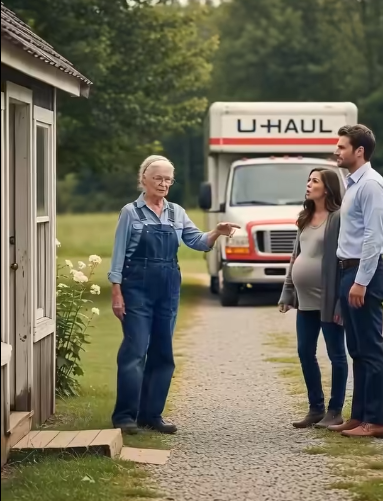At sixty-two years old, I never could have imagined the depth of loneliness and betrayal that awaited me within my own family. After years of devotion and sacrifice, raising my son with love and care, I found myself cast aside in the very home where I had hoped to spend my twilight years surrounded by family. It was a cruel irony, a bitter pill to swallow when my son—the very person I had devoted so much of my life to—offered me nothing more than a worn, uncomfortable couch to sleep on. Meanwhile, his mother-in-law, the woman I barely knew, was lavished with the luxury of a spacious, elegant apartment. The words he spoke to me echoed in my ears, sharper and more painful than the finality of my divorce: “If you wanted comfort, you should’ve stayed married to Dad.” Those words were not just rejection—they were a dagger aimed straight at my heart, a reminder that I had become invisible in the life I once nurtured.
My existence in that house was painfully diminished. The woman who had been a mother, a caretaker, and a cornerstone of that family was reduced to a ghost-like figure confined to a couch. My belongings, once numerous and full of memories, had been pared down to just two battered suitcases—a symbolic representation of how my life had shrunk into nothingness. I lived under a strict set of unspoken rules whispered through the walls, rules designed to remind me of my “place”: don’t touch the thermostat, don’t cook anything that might offend their noses, don’t use the nice towels. Each rule was a cold shove that chipped away at my dignity, turning the home into a cold, unwelcoming prison.
That night, overwhelmed by the crushing weight of loneliness and despair, I found myself clutching the last eight dollars I had in the world. On a fragile whim of hope, I decided to spend two of those dollars on a lottery ticket. It was a tiny act of defiance, a flicker of belief that fate might still offer me a chance. Then, at exactly 11:17 p.m., as if the universe itself was conspiring in my favor, every number on the screen matched my ticket. Three hundred million dollars. The moment was surreal—the couch that had symbolized my exile and invisibility suddenly became my springboard to freedom and renewal.
The transformation was swift and astounding. Within weeks, I had purchased a quaint farmhouse surrounded by rolling fields and open skies—my own sanctuary far from the cold walls of rejection. Owning land and a home that was truly mine breathed life back into my weary soul. I reveled in the simple joys of freedom: the crisp morning air, the smell of earth after rain, the quiet peace of a place where I was the master of my own destiny. For the first time in years, I felt the weight of invisibility lift, replaced by a blossoming sense of empowerment and hope.
Months later, life’s ironies came full circle. Marvin, my son, came to me—not with the arrogance and cruelty I had endured before, but humbled and desperate. He begged for help, the roles completely reversed. My “temporary exile,” as it had once felt, had become a kingdom—a place where I held the keys to not just a house, but my own future. I was no longer the overlooked, discarded mother but a woman who had taken control, risen above betrayal, and reclaimed her life with dignity and grace.
For a long time before the lottery, I carried the quiet ache of feeling invisible. Each day felt like a battle to prove I still belonged somewhere, that my love and sacrifices hadn’t been forgotten. The constant reminders—from cold shoulders to whispered complaints—etched deep scars in my heart. Yet, beneath that pain, a small flame of hope never fully extinguished. That hope gave me the courage to hold on, to believe that life might still surprise me.
I often found solace in the simplest of things—the early morning sunlight filtering through the curtains, the distant song of birds welcoming a new day. Those small moments became my refuge, my secret strength. When the loneliness crept in, I reminded myself that this too was temporary, that my story was far from over. Little did I know how dramatically my life was about to change.
The day I won the lottery, it wasn’t just the money that transformed me. It was the freedom to dream again, to reclaim control over my destiny. Suddenly, the future wasn’t a shadow of rejection but a blank canvas waiting for me to paint my own masterpiece. Every decision I made, every step I took, was infused with the exhilarating sense of possibility.
Owning my farmhouse wasn’t just about having a place to live—it was about creating a home filled with warmth, laughter, and new beginnings. I planted flowers, built a small vegetable garden, and opened my doors to neighbors who welcomed me with kindness. For the first time in years, I felt rooted, connected to something larger than my past pain.
Looking back, I see that the hardest moments forged the strongest parts of me. The betrayal, the loneliness, the coldness—they all became lessons in resilience. And when Marvin came knocking, it was not just a reversal of fortune—it was a testament to the power of never giving up on oneself, no matter how dark the night feels.
